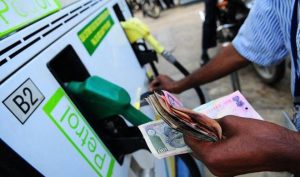Diesel And Petrol Prices Hike:

Diesel and petrol prices have hit record highs across the country, with petrol touching Rs 89 per litre in Delhi, and diesel reaching a new high of Rs 86.30 per litre in Mumbai.
- The government reasons that global crude oil prices have risen by more than 50 per cent to over $63.3 per barrel since October, forcing oil retailers to increase pump prices.
- Retail petrol and diesel prices are in theory decontrolled — or linked to global crude oil prices. Which means that if crude prices fall, as has largely been the trend since February, retails prices should come down too, and vice versa.
- But this does not happen in practice, largely because oil price decontrol is a one-way street in India. So, when global prices go up, the resultant increase is passed on to the consumer, who has to cough up more for every litre of fuel consumed.
- But when the reverse happens and prices slide, the government, almost by default, slaps fresh taxes and levies to ensure that it rakes in extra revenues.
- The main beneficiary in this subversion of price decontrol is the government. The consumer is a clear loser, as are the fuel retailing companies.
- Brent crude, which was trading at about $40 per barrel between June and October, started rising in November, and has gone past the $60 per barrel mark as the global rollout of Covid-19 vaccines gathers pace.
- The controlled production of crude amid rising demand has been another key factor in boosting oil prices, with Saudi Arabia voluntarily cutting its daily output by 1 million barrels per day to 8.125 million barrels per day through February and March.




